detail profile michel piccoli
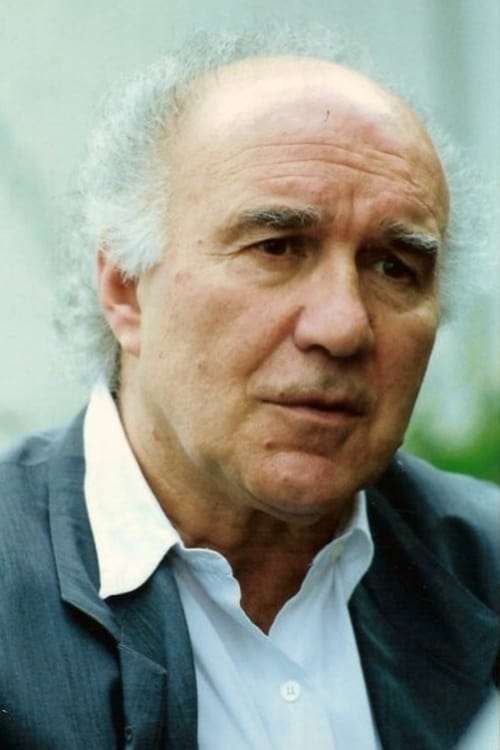
Michel Piccoli
Мишель Пикколи
atau dikenal sebagai
Riwayat Hidup
Michel Jacques Daniel Piccoli was the son of Henri Piccoli, violinist and Marcelle Expert-Bezançon (1892-1990), pianist and daughter of the French industrialist and politician Charles Expert-Bezançon.
In 1954, Michel Piccoli married actress Éléonore Hirt with whom he had a daughter, Anne-Cordélia Piccoli.
In 1966, he married the singer Juliette Gréco, then in 1978 the screenwriter Ludivine Clerc, with whom he adopted two children of Polish origin, Inord and Missia.
Placed in an establishment for problem children, the commitments of the young Piccoli, are made in opposition to his maternal grandfather, senator of the Third Republic, financier of the Radical Party, and important industrial painter, accused by the trade union left and by Georges Clemenceau, of having intoxicated his workmen through lead white which causes lead poisoning.
Michel Piccoli then trained as an actor first with Andrée Bauer-Théraud and then during Simon.
After an appearance as an extra in "Sortilèges" by Christian-Jaque in 1945, Michel Piccoli made his film debut in "Le Point Du Jour" by Louis Daquin.
In the theater he distinguished himself with the Renaud-Barrault and Grenier-Hussot companies as well as at the Théâtre de Babylone.
Noticed in the film "French Cancan" in 1954, he continued on stage and worked with directors Jacques Audiberti, Jean Vilar, Jean-Marie Serreau, Peter Brook, Luc Bondy, Patrice Chéreau and André Engel, and became also know in popular TV movies.
Having become an atheist after a family bereavement, he met Luis Buñuel in 1956, and ironically took on the role of a priest in "La Mort En Ce Jardin".
In 1959, he shot "Le Rendez-Vous De Noël", a short film by André Michel based on the short story by Malek Ouary "Le Noël Du Petit Cireur", in Algiers.
The 1960s sounded his consecration, noticed in "Le Doulos" by Jean-Pierre Melville, he was revealed internationally with "Le Mépris" by Jean-Luc Godard alongside Brigitte Bardot.
From then on, he toured with the greatest French and international filmmakers such as Alfred Hitchcock, Luis Buñuel, Youssef Chahine, Manoel de Oliveira.
.
.
He began the 1980s with the interpretation prize at the Cannes festival in 1980, with "Le Saut Dans Le Vide" by Marco Bellocchio, and that of the Berlin festival in 1982, with "Une Étrange Affaire" by Pierre Granier-Deferre.
.
He worked with Jacques Doillon, Leos Carax, before trying his hand at directing.
In 2001 he received the IX Europe Prize for Theatre.
He was part of the jury of the 60th Cannes Film Festival in 2007, chaired by Stephen Frears.
In 2011, he played in "Habemus Papam" by Nanni Moretti.
The last film in which Michel Piccoli appears is the film "Le Goût Des Myrtilles", by Thomas de Thiers in 2013.
Politically committed to the left, member of the Peace Movement (communist), Michel Piccoli distinguished himself by his positions against the National Front, and mobilized for Amnesty International.
Michel Piccoli died on May 12, 2020 following a stroke in his mansion in Saint-Philbert-sur-Risle in Eure.
His funeral takes place in Évreux on May 19, 2020, where he is cremated, his ashes are scattered within the family property.
Info Pribadi
Peran Yang Di Mainkan Michel Piccoli
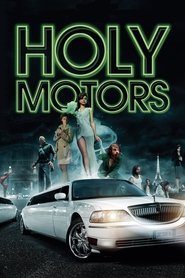 We follow 24 hours in the life...
We follow 24 hours in the life...Holy Motors 2012
We follow 24 hours in the life of a being moving from life to life like a cold and solitary assassin moving from hit to hit. In each of these interwoven lives, the being possesses an entirely distinct identity: sometimes a man, sometimes a woman, sometimes youthful, sometimes old. By turns murderer, beggar, company chairman, monstrous creature, worker, family man.
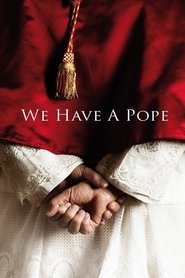 The newly elected Pope suffers a...
The newly elected Pope suffers a...We Have a Pope 2011
The newly elected Pope suffers a panic attack just as he is about to greet the faithful who have gathered to see him. His advisors, unable to convince him he is the right man for the job, call on a renowned therapist who also happens to be an atheist. But the Pope's fear of his newfound responsibility is one he must face alone. Winner Best Film at the Italian Golden Globes.
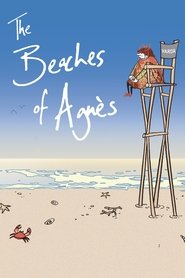 Filmmaking icon Agns Varda the awardwinning...
Filmmaking icon Agns Varda the awardwinning...The Beaches of Agnès 2008
Filmmaking icon Agnès Varda, the award-winning director regarded by many as the grandmother of the French new wave, turns the camera on herself with this unique autobiographical documentary. Composed of film excerpts and elaborate dramatic re-creations, Varda's self-portrait recounts the highs and lows of her professional career, the many friendships that affected her life and her longtime marriage to cinematic giant Jacques Demy.
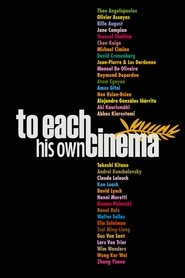 Commissioned to mark the 60th anniversary...
Commissioned to mark the 60th anniversary...To Each His Own Cinema 2007
Commissioned to mark the 60th anniversary of the Cannes Film Festival, "To Each His Own Cinema" brought together 33 of the world's pre-eminent filmmakers to produce short pieces exploring the multifarious facets of cinema and their perspective on the state of their chosen artform in the early 21st century.
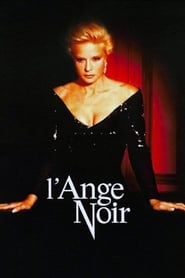 Stephane the wife of a prominent...
Stephane the wife of a prominent...The Black Angel 1994
Stephane, the wife of a prominent magistrate, shoots and kills a man in her home and claims he tried to rape her. While investigating her case, her lawyer becomes hopelessly enmeshed in a web of lies and subterfuges concerning her past.
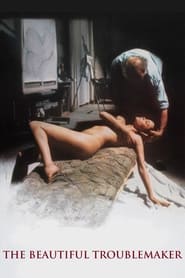 The former famous painter Frenhofer lives...
The former famous painter Frenhofer lives...La Belle Noiseuse 1991
The former famous painter Frenhofer lives quietly with his wife on a countryside residence in the French Provence. When the young artist Nicolas visits him with his girlfriend Marianne, Frenhofer decides to start again the work on a painting he long ago stopped: La Belle Noiseuse. And he wants Marianne as model.
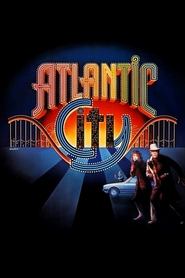 In a corrupt city a smalltime...
In a corrupt city a smalltime...Atlantic City 1980
In a corrupt city, a small-time gangster and the estranged wife of a pot dealer find themselves thrown together in an escapade of love, money, drugs and danger.
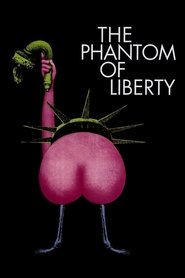 This Surrealist film with a title...
This Surrealist film with a title...The Phantom of Liberty 1974
This Surrealist film, with a title referencing the Communist Manifesto, strings together short incidents based on the life of director Luis Buñuel. Presented as chance encounters, these loosely related, intersecting situations, all without a consistent protagonist, reach from the 19th century to the 1970s. Touching briefly on subjects such as execution, pedophilia, incest, and sex, the film features an array of characters, including a sick father and incompetent police officers.
 A young woman becomes entangled with...
A young woman becomes entangled with...Cesar and Rosalie 1972
A young woman becomes entangled with a successful businessman, but her ex tries to win her back, provoking intense jealousy that leads her to reconsider her choice. Ultimately, one man's actions force a resolution to her dilemma.
 Liza meets the artist Giorgio and...
Liza meets the artist Giorgio and...Liza 1972
Liza meets the artist Giorgio and falls in love with him. She dreams of becoming the wife of Giorgio, but he is married. She dreams of being a close friend to him, but he has a favorite dog. Liza is ready for any sacrifice for the sake of her love. She kills Giorgio's dog and takes her place. Now she is a woman who always and everywhere follows her master.
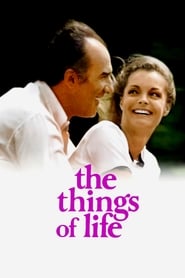 The mind of Pierre Brard a...
The mind of Pierre Brard a...The Things of Life 1970
The mind of Pierre Bérard, a successful middle-aged architect, is torn between his unstable present with Hélène, his younger lover, and his happy memories of the past with Catherine, his ex-wife; but his true destiny awaits him at a crossroads on his way to Rennes…
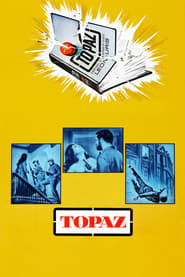 Copenhagen Denmark 1962 When a highranking Soviet...
Copenhagen Denmark 1962 When a highranking Soviet...Topaz 1969
Copenhagen, Denmark, 1962. When a high-ranking Soviet official decides to change sides, a French intelligence agent is caught up in a cold, silent and bloody spy war in which his own family will play a decisive role.
 International man of mystery Diabolik and...
International man of mystery Diabolik and...Danger: Diabolik 1968
International man of mystery Diabolik and his sensuous lover Eva Kant pull off heist after heist, all while European cops led by Inspector Ginko and envious mobsters led by Ralph Valmont are closing in on them.
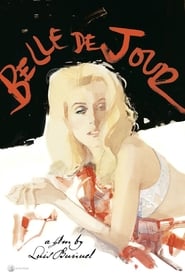 Beautiful young housewife Sverine Serizy cannot...
Beautiful young housewife Sverine Serizy cannot...Belle de Jour 1967
Beautiful young housewife Séverine Serizy cannot reconcile her masochistic fantasies with her everyday life alongside dutiful husband Pierre. When her lovestruck friend Henri mentions a secretive high-class brothel run by Madame Anais, Séverine begins to work there during the day under the name Belle de Jour. But when one of her clients grows possessive, she must try to go back to her normal life.
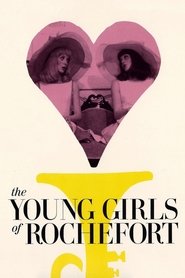 Delphine and Solange are two sisters...
Delphine and Solange are two sisters...The Young Girls of Rochefort 1967
Delphine and Solange are two sisters living in Rochefort. Delphine is a dancing teacher and Solange composes and teaches the piano. Maxence is a poet and a painter. He is doing his military service. Simon owns a music shop, he left Paris one month ago to come back where he fell in love 10 years ago. They are looking for love, looking for each other, without being aware that their ideal partner is very close...
 Near the end of World War...
Near the end of World War...Is Paris Burning? 1966
Near the end of World War II, Gen. Dietrich von Choltitz receives orders to burn down Paris if it becomes clear the Allies are going to invade, or if he cannot maintain control of the city. After much contemplation Choltitz decides to ignore his orders, enraging the Germans and giving hope to various resistance factions that the city will be liberated. Choltitz, along with Swedish diplomat Raoul Nordling, helps a resistance leader organize his forces.
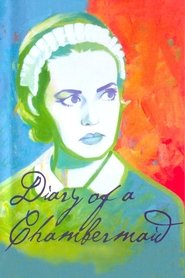 Celestine has a new job as...
Celestine has a new job as...Diary of a Chambermaid 1964
Celestine has a new job as a chambermaid for the quirky M. Monteil, his wife and her father. When the father dies, Celestine decides to quit her job and leave, but when a young girl is raped and murdered, Celestine believes that the Monteils' groundskeeper, Joseph, is guilty, and stays on in order to prove it. She uses her sexuality and the promise of marriage to get Joseph to confess -- but things do not go as planned.
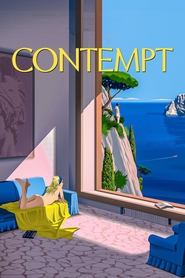 A philistine in the art film...
A philistine in the art film...Contempt 1963
A philistine in the art film business, Jeremy Prokosch is a producer unhappy with the work of his director. Prokosch has hired Fritz Lang to direct an adaptation of "The Odyssey," but when it seems that the legendary filmmaker is making a picture destined to bomb at the box office, he brings in a screenwriter to energize the script. The professional intersects with the personal when a rift develops between the writer and his wife.
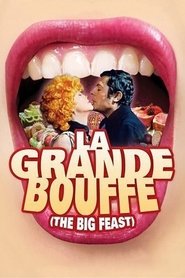 Four friends gather at a villa...
Four friends gather at a villa...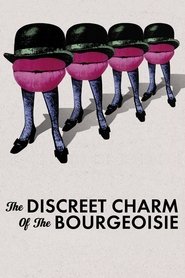 In Luis Buuels deliciously satiric masterpiece...
In Luis Buuels deliciously satiric masterpiece...